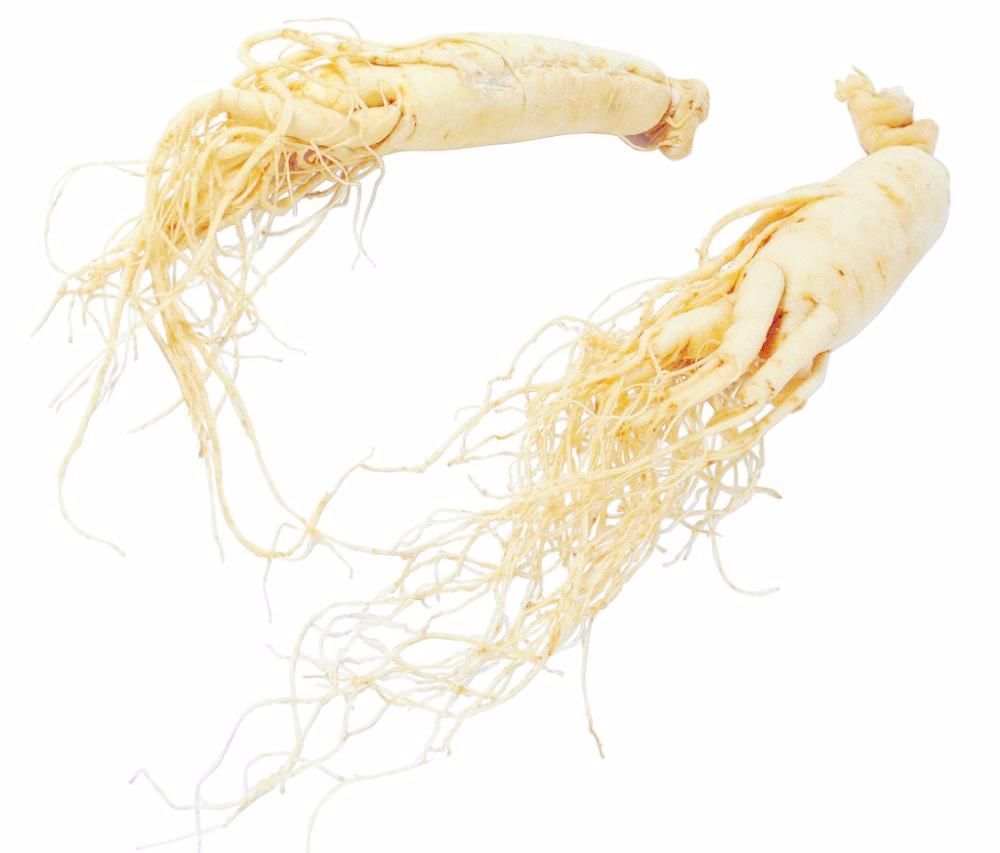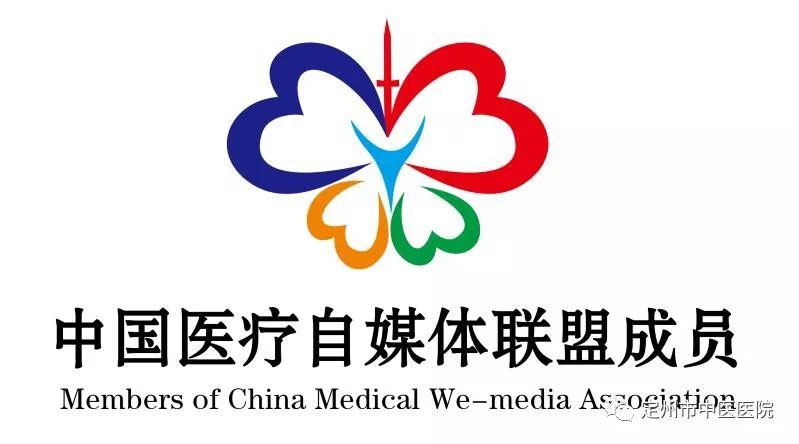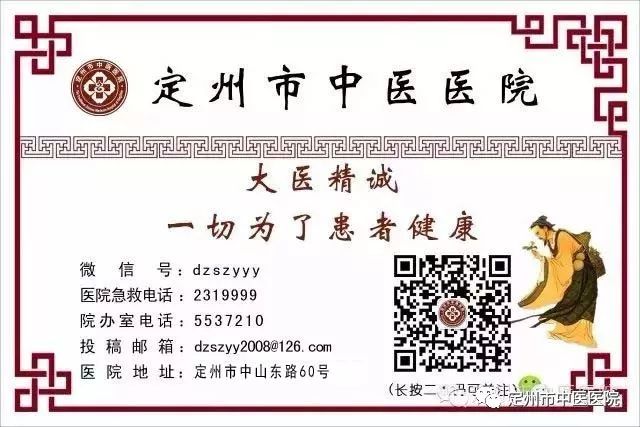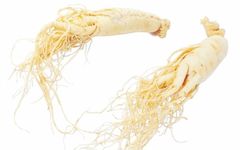Promoting Traditional Chinese Medicine culture and enhancing the essence of TCM.
Utilizing the advantages of TCM to showcase the spirit of TCM practitioners.
Generally speaking, different individuals have varying constitutions. When adopting TCM health preservation methods, if one can arrange according to their constitution, it will lead to better health. Qi deficiency is a common issue among many people. So, what are the manifestations of Qi deficiency?
Qi deficiency refers to a condition where the functions of the body’s organs are disordered, leading to insufficient generation of Qi. Common manifestations include a weak voice, thin or slightly overweight body, pale complexion, shortness of breath, reluctance to speak, lack of energy, fatigue, spontaneous sweating, especially worse with movement, pale red tongue with tooth marks on the sides, white coating, and weak pulse. Various causes can lead to this condition, with different symptoms depending on the affected organs such as the heart, lungs, spleen, and kidneys. The tendency for illness includes susceptibility to colds, organ prolapse, generally weak resistance, and slow recovery after illness. The overall treatment principle is to tonify and nourish Qi, while also selecting specific herbal formulas based on the organ involved. According to the theory of the shared origin of Qi and blood, appropriate blood-tonifying herbs should also be added.
Common manifestations of Qi deficiency include: thin or slightly overweight body, pale complexion, shortness of breath, fatigue, spontaneous sweating, especially worse with movement, pale red tongue with tooth marks on the sides, white coating, and weak pulse. Qi deficiency in the five organs can be clinically observed, particularly in the heart, lungs, spleen, and kidneys. In addition to the common clinical manifestations of Qi deficiency, corresponding pathological changes in the heart, lungs, spleen, and kidneys may present different symptoms. The tendency for illness includes susceptibility to colds, organ prolapse, generally weak resistance, and slow recovery after illness.
TCM Treatment Methods for Qi Deficiency:
1. Spleen and Stomach Qi Deficiency
Symptoms: reduced appetite, discomfort in the stomach after eating, loose stools, pale yellow complexion, pale tongue with white coating, weak and slow pulse. Treatment principle: strengthen the spleen and benefit Qi. Main formula: Si Jun Zi Tang (Four Gentlemen Decoction), Shen Ling Bai Zhu San (Ginseng, Poria, and Atractylodes Powder). Common herbs: Dang Shen (Codonopsis), Huang Qi (Astragalus), Huai Shan Yao (Chinese Yam), Bai Bian Dou (Lima Bean), Yi Yi Ren (Job’s Tears), Mai Dong (Ophiopogon), Bai Zhu (Atractylodes), Gan Cao (Licorice).
2. Kidney Qi Deficiency
Symptoms: soreness in the lower back and knees, frequent clear urination, thin and clear vaginal discharge, pale tongue with white coating, weak and thin pulse. Treatment principle: benefit Qi and tonify the kidneys. Main formula: Shen Qi Wan (Kidney Qi Pill), Da Bu Yuan Jian (Great Tonifying Original Decoction). Common herbs: Dang Shen (Codonopsis), Shu Di (Rehmannia), Sheng Di (Raw Rehmannia), Huai Shan Yao (Chinese Yam), Gou Qi Zi (Goji Berries), Shan Zhu Yu (Cornus), Dang Gui (Angelica), Zhi Gan Cao (Honey-fried Licorice), Tu Si Zi (Cuscuta), Yi Zhi Ren (Alpinia).
3. Heart Qi Deficiency
Symptoms: palpitations, chest tightness, pale tongue, weak and irregular pulse. Treatment principle: benefit Qi and nourish the heart. Main formula: Yang Xin Tang (Nourishing the Heart Decoction), Qi Fu Yin (Seven Fortunes Decoction). Common herbs: Ren Shen (Ginseng), Bai Zhu (Atractylodes), Zhi Gan Cao (Honey-fried Licorice), Huang Qi (Astragalus), Dang Gui (Angelica), Chuan Xiong (Ligusticum).
4. Lung Qi Deficiency
Symptoms: weak cough, shortness of breath, worsens with movement, clear and thin phlegm, prone to colds, pale tongue with white coating, weak pulse. Treatment principle: tonify lung Qi. Main formula: Bu Fei Tang (Lung Tonifying Decoction), Yu Ping Feng San (Jade Windscreen Powder), Sheng Mai San (Generate Pulse Powder). Common herbs: Dang Shen (Codonopsis), Huang Qi (Astragalus), Huai Shan Yao (Chinese Yam), Tai Zi Shen (Pseudostellaria), Mai Dong (Ophiopogon), Bai Zhu (Atractylodes), Gan Cao (Licorice), Da Zao (Jujube), Shu Di (Rehmannia), Wu Wei Zi (Schisandra).
In summary, individuals with Qi and blood deficiency often exhibit symptoms such as pale complexion, fatigue, white tongue coating, and thin body. Once one identifies their constitution as Qi deficient, they can adopt TCM differential diagnosis and treatment methods for improvement.
Common Qi-tonifying herbs include:
1. Ren Shen (Ginseng)
This is one of the most important and precious Qi-tonifying herbs, with a sweet and slightly bitter taste, and a slightly warm nature. It functions to greatly tonify original Qi, benefit the intellect, and calm the spirit, making it an excellent health supplement.
Research has confirmed that ginseng promotes cell development and increases the number of cell divisions. American scholar H. Flick believes that human cells stop dividing after about 50 times, and each division takes about 2.4 years. If one can achieve 50 divisions, they could live to 120 years. Due to ginseng’s ability to greatly tonify original Qi, it is often used for conditions such as weak respiration, cold extremities, weak pulse, and low blood pressure in shock. Additionally, ginseng has anti-aging properties, suitable for those with chronic illness, heart palpitations, spontaneous sweating, cold limbs, shortness of breath, collapse, heart failure, and neurasthenia.
When stewing, the usual dosage is 3-9 grams; it should be simmered over low heat for more than 1 hour to extract the effective components of ginseng to ensure efficacy. When taken as powder, ginseng should be dried and ground into fine powder, with a dosage of 1-2 grams each time. When soaked in alcohol, ginseng should be cut into pieces and soaked in good rice wine for about 1 month before consumption, with a dosage of 2 tablespoons, twice a day.
2. Huang Qi (Astragalus)
Huang Qi is the dried root of the leguminous plant Astragalus, characterized by a yellow-white color, firm texture, and easy to break. The best quality has no black or hollow parts.
Huang Qi is slightly warm, sweet in taste, and functions to tonify Qi, raise Yang, strengthen the surface, expel toxins, promote muscle regeneration, and reduce swelling. It is suitable for spontaneous sweating, night sweats, blood stasis, edema, non-ulcerated sores, internal injuries, fatigue, spleen deficiency diarrhea, prolapse, and all conditions of Qi and blood deficiency.
Huang Qi contains sugars, folic acid, and various amino acids. It can stimulate the central nervous system, enhance spirit, combat fatigue, improve immune function, and enhance disease resistance. It is effective in preventing Qi deficiency, colds, and infections, and has cardiotonic, diuretic, and hypotensive effects. It also contains trace elements like selenium, which is an enemy of cancer, thus having anti-cancer properties.
When decocted, the usual dosage is 9-30 grams; however, it should be avoided in cases of high fever, extreme thirst, and constipation.
3. Dang Shen (Codonopsis)
Dang Shen is the root of the perennial herb Codonopsis, with the best quality coming from Shanxi province. It contains inulin, alkaloids, saponins, and vitamins B1 and B2, which can stimulate the central nervous system, uplift the spirit, eliminate fatigue, and increase red blood cells and hemoglobin, as well as enhance immunity. Additionally, it can counteract the decrease in blood cells caused by chemotherapy and radiation.
This herb is neutral in nature, sweet in taste, and functions to tonify the middle, benefit Qi, generate fluids, and nourish blood. It is commonly used for fatigue due to Qi deficiency, shortness of breath, palpitations, reduced appetite, loose stools, thirst due to both Qi and fluid deficiency, and symptoms of Qi and blood deficiency such as pale complexion and dizziness, as well as weakness after illness and malnutrition.
When soaked in alcohol, cut Dang Shen into pieces and soak in 1 jin of rice wine or white liquor for 1 month before consumption, with a dosage of 2-3 tablespoons, three times a day.
When decocted, the usual dosage is 9-15 grams for internal use.
This herb should not be used with Li Lu (Veratrum).
4. Tai Zi Shen (Pseudostellaria)
Tai Zi Shen is the tuber of the perennial herb Pseudostellaria heterophylla, also known as child ginseng, and is an excellent tonic. It contains fructose, starch, saponins, and various amino acids, which have a strengthening effect and can enhance the immune function of the body.
In TCM, it is considered neutral in nature, sweet and slightly bitter in taste, and functions to tonify the lungs, strengthen the spleen, benefit Qi, and generate fluids. It can be used for symptoms of spleen Qi deficiency such as reduced appetite, fatigue, and thinness in children; lung deficiency cough, spontaneous sweating, palpitations, thirst due to insufficient fluids, and conditions of Qi and Yin deficiency after illness.
Usual dosage: 9-30 grams, and it should be kept dry and ventilated or sealed after drying to prevent mold.
5. Gan Cao (Licorice)
Gan Cao is the root and rhizome of the perennial herb Glycyrrhiza, characterized by a firm and heavy texture, thin skin, and a yellow-white cross-section with a sweet taste and few fibers when chewed. It contains glycyrrhizin, liquiritin, isoflavonoids, glycyrrhizic acid, and other components. Animal experiments have shown that glycyrrhizin has adrenal cortex hormone-like effects and anti-inflammatory and anti-allergic properties. Additionally, it has cough-relieving, analgesic, and anticonvulsant effects.
In TCM, it is considered neutral in nature, sweet in taste, and functions to tonify the spleen and harmonize the middle, relieve pain, moisten the lungs, relieve cough, detoxify, and harmonize various herbs. It is suitable for symptoms of spleen and stomach deficiency, abdominal pain, cough, palpitations, sores, swelling, and poisoning.
Dosage: 1.5-9 grams, and it should not be used with Da Ji (Euphorbia), Yuan Hua (Genkwa), Gan Sui (Kansui), or Hai Zao (Sargassum).
Qi-tonifying formula: One coconut. Remove the outer skin, shell, and take the white flesh, cutting it into small pieces to eat, with a dosage of several pieces each time.




Contact Information for Departments at the Traditional Chinese Medicine Hospital in Dingzhou
Emergency: 2319999
Ophthalmology: 2322220—8202
Pediatrics: 2322220—8502
Orthopedics: 2322220—8602
Surgery: 2322220—8702
Dermatology: 2322220—8123
ENT: 2322220—8208
Reporting: 2322220—8137
Urology: 2322220—8139
Proctology: 2322220—8198
Stomatology: 2322220—8205
Hepatology: 2322220—8210
Pain Management: 2322220—8218
Traditional Chinese Medicine Hall: 2322220—8303
Rehabilitation: 2322220—8262
Obstetrics and Gynecology: 2322220—8401
Cardiology: 2322220—8802
Neurology: 2322220—8902
Respiratory Medicine: 2322220—8922
Gastroenterology: 2322220—8209
Radiology: 2322220—8128
Diabetes and Nephrology: 2322220—8116

